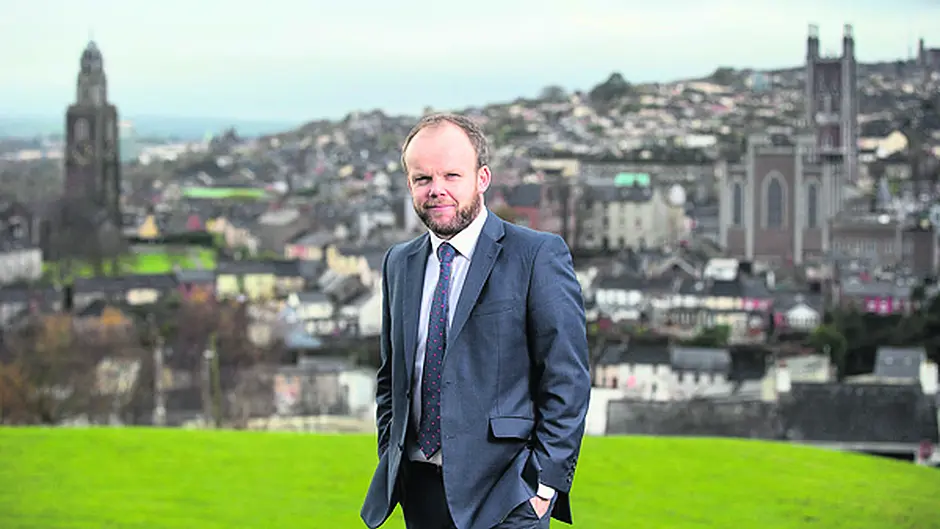Highly-skilled tech professionals from all over the world are moving to Cork for a better quality of life, improved career opportunities, shorter commutes and lower living costs
CORK is fast becoming an international high-tech hub, attracting a large number of foreign and indigenous tech start-ups.
That’s the main finding of the recent Cork Tech Talent Relocation Survey, carried out by National Recruitment & HR Services Group Collins McNicholas in conjunction with Cork Chamber, IDA Ireland and Cork City Council.
The report included responses from workers of 27 different nationalities, with two thirds having relocated to Cork during the last two years. Respondents relocated from countries such as China, the US, South Africa, France, Egypt and the Netherlands.
Some 84% of respondents to the survey currently work in the city’s buoyant IT sector.
More than 85% of those surveyed said they were satisfied or very satisfied with their relocation. And 80% say they now have a better balance between their work and home lives.
A total of 85% now have a commute to work of less than 40 minutes and 78% said they did not consider it difficult to find a job in Cork.
Interestingly, while 27% of those who moved back were originally from Ireland, some 73% relocated from outside of Ireland.
One such example of someone who has relocated to the area is Ed Tan, group marketing and sales with the Tria Oil Group at Caheragh in West Cork.
Ed had been working at large tech companies in his hometown of San Francisco when his better half, from Co Wicklow, felt the pull home. ‘We settled in beautiful Caheragh. One requirement we had before settling was good internet. It helps that we are located close to Skibbereen, Ireland’s first Gigabit town. We couldn’t live in a nicer location — 10 minutes to both Skibbereen and Bantry, and, Cork city is an hour away. It has been pure luck to find a job so close to home. I used to commute one hour each way, in San Francisco, and now I am five minutes from home to office.’
When asked about the factors which influenced their move to Cork, 73% of respondents cited a better quality of life while 72% referenced a reduced cost of living. The other main reasons given were: lower property prices, less traffic, career opportunities, beautiful scenery and a safer environment.
Among the survey’s other key findings were: 64% have experienced an increase in salary since moving to Cork; 67% of respondents have since bought property in Cork or are considering it; Cork attracts highly-skilled professionals with 89% holding a third-level qualification; 42% of those hold post-grads with another 4% having PhDs or doctorates; almost a quarter said their disposable income had increased by 20% or more since moving to Cork with 48% saying the increase had been between zero and 20%. Since relocating to Cork, 35% of respondents said they’d attained a more senior role.
Rory Walsh, Cork regional manager of Collins McNicholas, said the Cork region is experiencing a surge in the number of international professionals who are moving to the region for the work life balance, that both the culture and economic environment can facilitate.
‘Many expanding global organisations and indigenous companies are offering competitive salaries and interesting projects while the region also provides an unrivalled local charm and thriving social scene,’ he said.
Seamus Coghlan, head of economic development at Cork City Council, added: ‘The draft National Planning Framework (NPF) has acknowledged the role of cities as drivers of economic development. Cork, as the second largest city in Ireland, is well placed to take advantage of this, leveraging existing strengths and economic successes especially in FDI in the Life Sciences, ICT and internationally traded services sectors.’
Ray O’Connor, is the IDA regional manager in the South West: ‘Over the last seven years, Cork has seen consistent growth in the numbers gaining employment across international companies — an increase of 11,500 people since 2009,’ he pointed out. ‘It’s a university city with over 30,000 full and part-time students across several colleges; strong established industry clusters; an expanding international airport on its doorstep; a cosmopolitan city with a rich mix of different nationalities; a rich heritage and history; and a great quality of life – these are some of the factors that have attracted both international companies and people with skills and talent to the area.’







